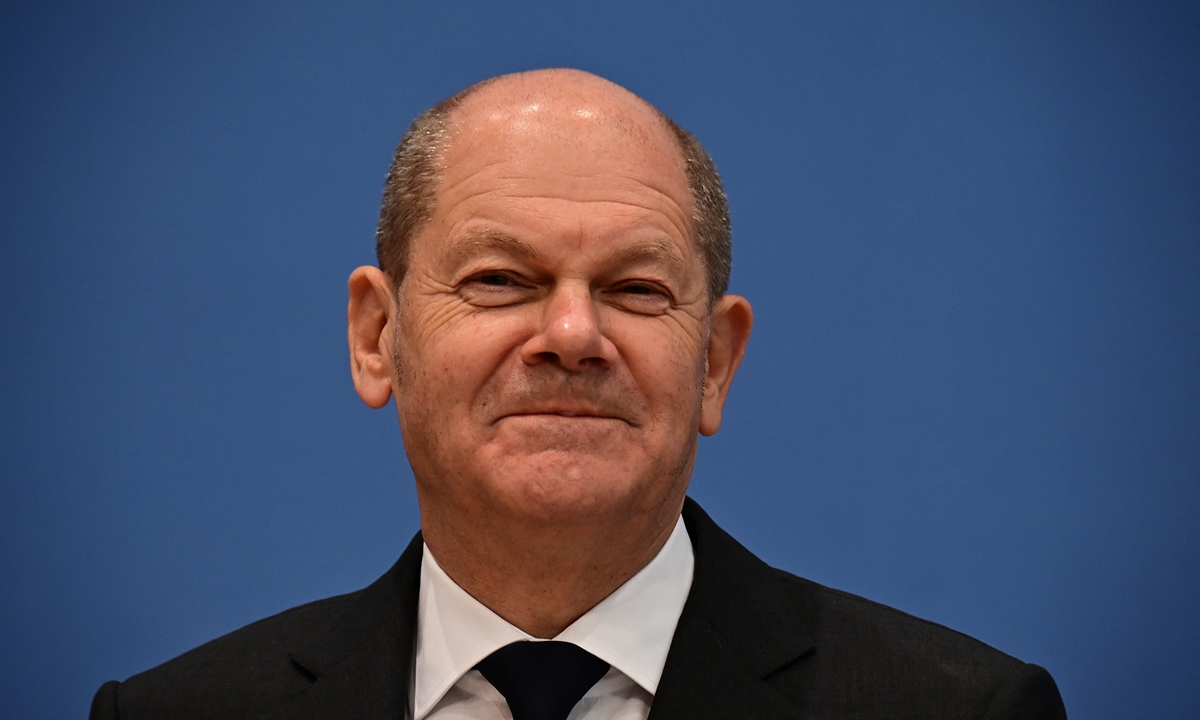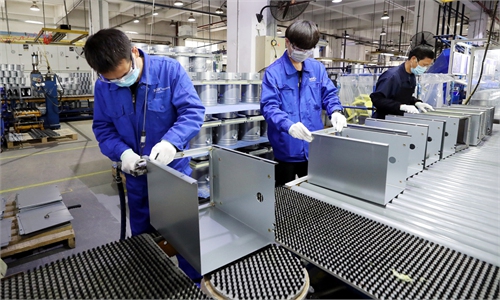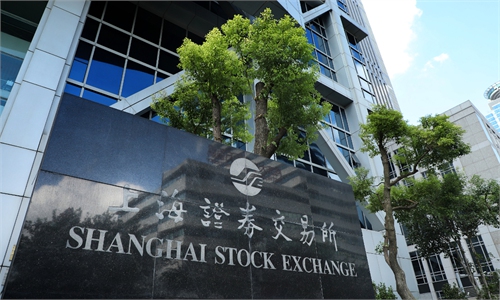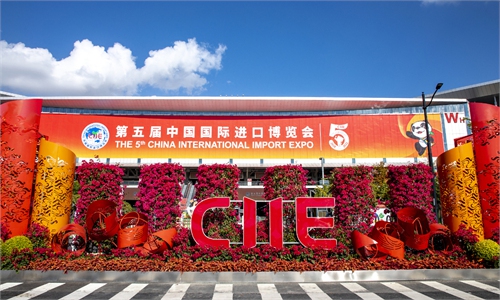Scholz's remarks encourage Europe not to misjudge China's rise, blindly follow US: experts

Olaf Scholz Photo: AFP
While many believe that the international order is on the brink of an era of polarization, or that a Cold War is looming that will pit China against the US, German Chancellor Olaf Scholz reiterated his position that China's rise does not warrant "isolating Beijing or curbing cooperation" in an open editorial published recently on the website of US international relations magazine Foreign Affairs.
Although Scholz has raised concerns over the growing insecurity in the South China Sea and the Taiwan Straits, Chinese experts still regarded his statement as generally objective and pragmatic. They noted that the more important role of Scholz's remarks is to guide Europe and even the entire world not to misjudge the opportunities brought by China's rise.
Scholz stressed in the article that the world is facing a "Zeitenwende" (meaning an epochal tectonic shift), with new powers having emerged or re-emerged, including an "economically strong and politically assertive China."
China's rise is neither a reason to isolate China nor an excuse to limit cooperation with China, Scholz said in the article, adding that he does not agree with the idea that the world is entering a new Cold War between China and the US.
In response to Scholz's article, Chinese Foreign Ministry Spokesperson Mao Ning said on Tuesday's routine news briefing that China's foreign policy stands for world peace and common development. Isolating China and curbing cooperation with it serves no one's interest.
China has been deeply integrated into the world economy and the international system, and the world will not go back to the days of mutual exclusiveness and division. It is impossible for any country to prosper behind closed doors. Pushing for decoupling and disruption of industrial and supply chains and building"small yards with high fences" benefits no one and will eventually backfire, Mao pointed out.
In early November, Scholz paid a short but meaningful visit to Beijing, agreeing on enhanced dialogue and cooperation and rejecting decoupling and bloc confrontation. As the first European leader to visit China after the 20th Communist Party of China National Congress and the first G7 leader to visit the country since the outbreak of COVID-19, Scholz faced mounting pressure from some German and European politicians at that time, especially from Washington.
Scholz's remarks in the mainstream American magazine further reaffirmed Germany's position and attitude as a regional power, that is, the German government is protecting the interests of its people and enterprises, rather than blindly following the US policy on China. His comments have a broad political and social basis in German society, Sun Keqin, a research fellow at the China Institutes of Contemporary International Relations, told the Global Times on Tuesday.
The expert said that Scholz's visit to China was quite fruitful, especially against the backdrop of the economic downturn in Germany and the conflict between Russia and Ukraine. Many German companies have directly benefited from developing economic and trade cooperation with China.
The year 2022 marks the 50th anniversary of the establishment of China-Germany diplomatic relations. The sound development of China-Germany relations in the past has set a good example of seeking common ground while shelving differences and pursuing win-win cooperation.
The German leader's views on China to some extent reflect the country's more objective and pragmatic view of China's development. China should also respond positively, as such mutual trust and cooperation are in the common interests of both sides, Liu Zuokui, deputy director of the Institute of European Studies at the Chinese Academy of Social Sciences, told the Global Times.
One of the main challenges for the development of China-EU relations now lies in whether the bilateral diplomacy should be led by values and social systems or by economic and trade cooperation. Once the balance and tacit agreement between the two sides on key issues are broken, problems and contradictions will become prominent, Liu noted.
Many Chinese experts who have observed China-EU relations for a long time have said there is great potential for China and Europe to develop bilateral relations and negotiate and manage global issues. Despite differences in values and social systems, the potential of China-EU cooperation can still be maximized by managing and resolving differences and conflicts step by step.
The visits of Scholz and President of the European Council Charles Michel indicate that Europe is further facing up to China's development and the infinite possibilities of bilateral cooperation, Liu said.
Chinese President Xi Jinping and European Council President Charles Michel met on December 1 in Beijing and the two sides vowed to strengthen strategic communication and cooperation while properly managing differences.
Although there are different voices within Europe, anti-China remarks and practices are not, and cannot become mainstream in the context of the ever-closer cooperation and the further strengthening of dialogue between China and the EU, experts stressed.



